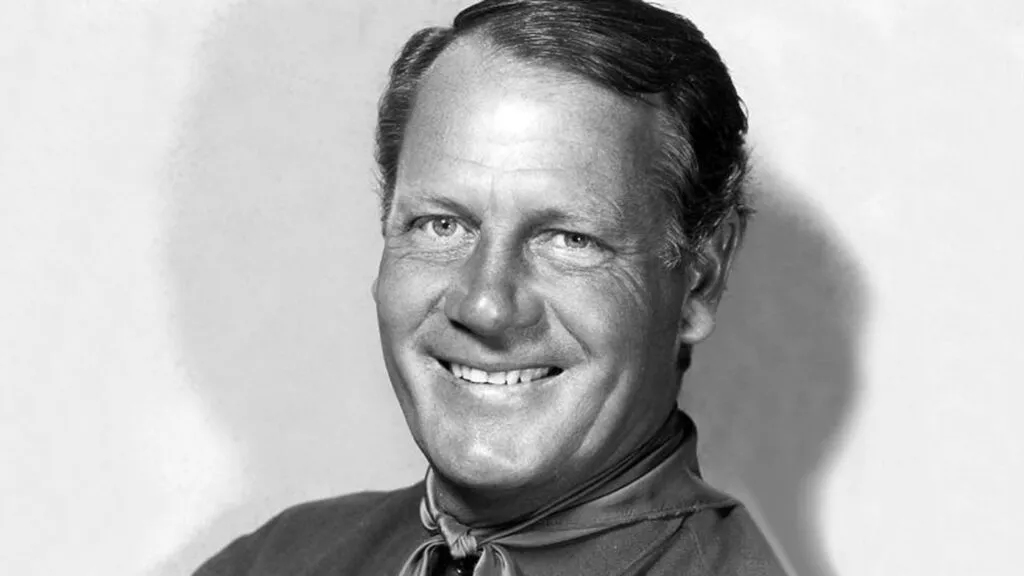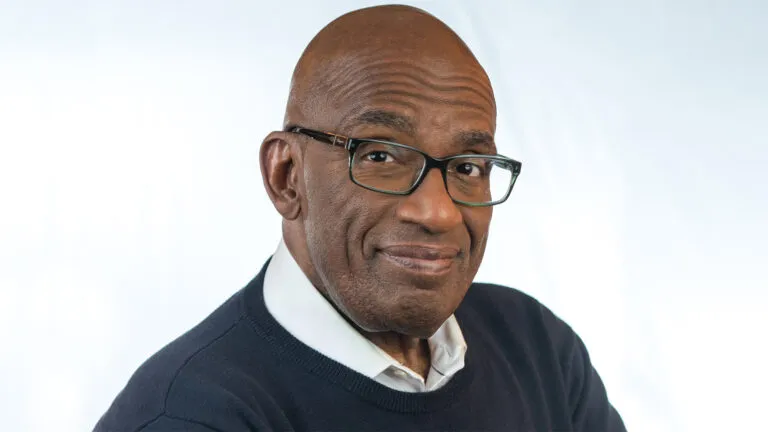If my experience in motion pictures has taught me anything, it is this: No mere man is clever enough to control all the forces which must work together for all-around success in life. I do not believe in luck, nor can I take personal credit for the piloting of my own career.
While attending Hollywood High School, my fellow students said I lacked “get-up-and-go.” Though ambitious, I seemed to lack drive. But my dreams were of the wide spaces, open sky and a cattle ranch.
Hollywood was a smaller town then, and my newspaper route was star-studded. As a boy, I tossed the Los Angeles Times on the doorstep of Mary Pickford and Douglas Fairbanks. I was on friendly terms with others of my customers: Gloria Swanson, Wallace Reid, Cecil B. de Mille and William S. Hart.
Hart was a famous silent-screen cowboy actor. Each time I threw a paper on his porch, I imagined that my delivery bike was a horse and for a moment the paved street was a cactus-studded range.
During the summers, I worked for the King Cattle Company in the Tehachapi Mountains, where I was taught to ride the range and to farm.
To achieve my goal of a ranch, I needed capital. Acting would be a fine way to acquire this capital, I decided. It might even be fun. And the jump from a delivery bike to the silver screen isn’t at all fantastic in a place like Hollywood.
My mother had some advice to offer. She had always relied on a line from the Lord’s Prayer, “Thy will be done.” With her, it was not a term of martyred resignation. On the contrary, it was a joyous note of confidence in a Divine harmonious plan which included all men.
If I listened for His voice, followed His guidance and wisdom instead of my own, she advised, He would lead me to my proper place. And what could I want, she asked, more than my proper place?
My father had given me 12 months in which to prove myself in pictures. Should I fail, I was to “go out and get a job.” For 11 months I failed miserably, averaging 3 days a month as an extra at $7.50 a day.
One morning I awoke with a great sense of harmony, of peace, of my right relationship to the world and everyone in it. Even the rain outside, which would make moist hunting of my daily studio rounds, seemed a blessing. I could wear my new trench coat, a prized possession.
I was standing outside the door of the RKO casting office when a producer went by. A mighty man with parts to give, he looked me over carefully. My heart rose. He passed into his office without a word. My heart sank. But in a minute he was back, “You,” he called. “Come in here.”
I stood in his office, a little damp, but feeling again that sense of rightness. “This,” thought I, “is it.”
“What do you do around here?” he asked.
“I’m an actor,” I said, stretching the truth a bit.
“Where did you get that trench coat?”
I couldn’t believe my ears. “Place up in Hollywood,” I faltered.
“How much?”
“Eighteen dollars.”
“I like it,” he said. “Could you get me one?” I watched him peel off a twenty and then I was out in the rain again, trudging three miles because I didn’t want to waste carfare. And he didn’t even tip me.
Next morning our phone rang. It was the producer. “Are you the trench coat fellow?” he demanded. “I’ve been thinking about you,” he said. “Didn’t you say you were an actor? We just bought a story, and the guy in it…Well, you are the guy. Built the same. Look the same. You better come back here.”
There it was. The open door. Luck? Maybe. Maybe once…or twice. But when you find you can apply a certain principle to every phase of life, at any given moment, It can’t be just luck. Through the years I have followed the principle of “asking my way of Him,” and then confidently taking the next step which seems right.
Several years ago, for example, a major studio had a call on me for one picture a year. That is a commitment and, in the last analysis, I could be forced to do that picture whether I liked the part or not.
One day I was mailed a script which had me playing the lead opposite one of our foremost glamour girls. My agent was delighted. “She’s never made a picture that’s lost money. She’s great box office.”
But I didn’t like the story, nor my part. It was a distasteful, degrading one, I thought. Nor did I personally care for the torrid story any more than I could see myself as the lover.
Starting with the producer, I carefully explained why I did not want to make the picture. He referred me to the executive producer, who passed me on to the executive, executive producer. Each time I repeated my explanation until my own monologue was beginning to bore me. And all it got me was a date to explain my feelings to the big boss.
I valued my reputation for cooperation. Never had I been forced to be “difficult,” to refuse a part. I didn’t want to now. And a contract is a contract. Nevertheless, I felt strongly I shouldn’t do this picture. It was, you might say, a dilemma. And as I faced the chief executive, a man reputed to be ruthless and deaf to any pleas, I knew that beyond this office I had no further recourse.
He looked at me with cold eyes and said abruptly, “I don’t want a long story. I want just one good reason wily you don’t want to play this part.”
In a moment of silence, I reached mentally for help. Then I said slowly, “I would be embarrassed to have my sons see me in this picture.”
For a second he just stared. Then he stood up, clapped me on the shoulder and said, “I see you have given this honest thought… Maybe you’d like to do a Western we’re working on?”
Was that a “lucky” line? I don’t think so. Was I clever? I know I wasn’t. It was truth speaking in me, recognized by the producer, and harmony between us was the inevitable result.
I don’t claim I haven’t made mistakes. I have. But most of my mistakes were due to trusting “luck,” or my own judgment instead of His.
For more inspiring stories, subscribe to Guideposts magazine.





